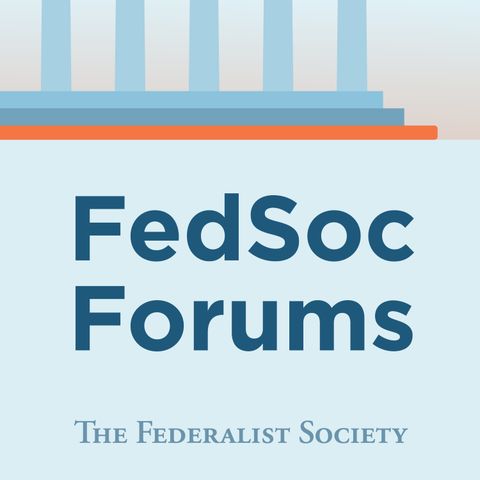California and Lead Paint Public Nuisance Case

Sep 21, 2018 ·
48m 20s
ConAgra Grocery Products Company, NL Industries, Inc., and The Sherwin-Williams Company filed petitions with the United States Supreme Court seeking review of the California Court of Appeal’s decision in The...
show more
ConAgra Grocery Products Company, NL Industries, Inc., and The Sherwin-Williams Company filed petitions with the United States Supreme Court seeking review of the California Court of Appeal’s decision in The People of California v. ConAgra Grocery Products Company, 17 Cal. App. 5th 51. This lawsuit in California is using a novel legal theory – public nuisance – which is spreading to other industries across the country.
The petitions raise important issues of national significance regarding the decision, which imposed hundreds of millions of dollars in public nuisance liability on three companies based on decades-old truthful advertising of a lawful product without proof that defendants caused any injury, that anyone relied on the advertisements to use lead paint on the interior of their homes, or that the defendants’ lead paint is in any home.
Amicus Curiae briefs filed in support of the Petitioners agree that California’s misuse of public nuisance in this way violates the defendants’ free speech and due process rights and puts at risk every product manufacturer that has ever done business in California.
Featuring:
Michael A Carvin, Partner, Jones Day
Representing The Sherwin-Williams Company
Erin E. Murphy, Partner, Kirkland Ellis
Representing ConAgra Grocery Products
ConAgra Grocery Products Co. v. California
18-84
Issues: (1) Whether imposing massive and retroactive “public nuisance” liability without requiring proof that the defendant’s nearly century-old conduct caused any individual plaintiff any injury violates the due process clause; and (2) whether retroactively imposing massive liability based on a defendant’s nearly century-old promotion of its then-lawful products without requiring proof of reliance thereon or injury therefrom violates the First Amendment.
The Sherwin-Williams Co. v. California
18-86
Issues: (1) Whether, in conflict with decisions of the Supreme Court and the U.S. Court of Appeals for the 3rd Circuit, the First Amendment permits California to impose tort liability for truthfully promoting a lawful product that it finds to be hazardous in some uses; and (2) whether the due process clause allows a state to impose retroactive and grossly disproportionate public nuisance liability to inspect and abate millions of residences based on decades-old promotions without evidence that consumers relied on those promotions or that petitioner’s lead paint is in any residence.
For more information including petitioners’ and amici briefs, visit www.leadlawsuits.com.
Dial 888-752-3232 at 2:00 p.m. ET to join. This call is open to non-members and press.
show less
The petitions raise important issues of national significance regarding the decision, which imposed hundreds of millions of dollars in public nuisance liability on three companies based on decades-old truthful advertising of a lawful product without proof that defendants caused any injury, that anyone relied on the advertisements to use lead paint on the interior of their homes, or that the defendants’ lead paint is in any home.
Amicus Curiae briefs filed in support of the Petitioners agree that California’s misuse of public nuisance in this way violates the defendants’ free speech and due process rights and puts at risk every product manufacturer that has ever done business in California.
Featuring:
Michael A Carvin, Partner, Jones Day
Representing The Sherwin-Williams Company
Erin E. Murphy, Partner, Kirkland Ellis
Representing ConAgra Grocery Products
ConAgra Grocery Products Co. v. California
18-84
Issues: (1) Whether imposing massive and retroactive “public nuisance” liability without requiring proof that the defendant’s nearly century-old conduct caused any individual plaintiff any injury violates the due process clause; and (2) whether retroactively imposing massive liability based on a defendant’s nearly century-old promotion of its then-lawful products without requiring proof of reliance thereon or injury therefrom violates the First Amendment.
The Sherwin-Williams Co. v. California
18-86
Issues: (1) Whether, in conflict with decisions of the Supreme Court and the U.S. Court of Appeals for the 3rd Circuit, the First Amendment permits California to impose tort liability for truthfully promoting a lawful product that it finds to be hazardous in some uses; and (2) whether the due process clause allows a state to impose retroactive and grossly disproportionate public nuisance liability to inspect and abate millions of residences based on decades-old promotions without evidence that consumers relied on those promotions or that petitioner’s lead paint is in any residence.
For more information including petitioners’ and amici briefs, visit www.leadlawsuits.com.
Dial 888-752-3232 at 2:00 p.m. ET to join. This call is open to non-members and press.
Information
| Author | The Federalist Society |
| Website | - |
| Tags |
Copyright 2024 - Spreaker Inc. an iHeartMedia Company
